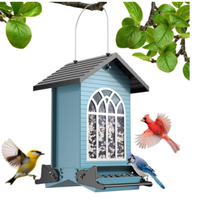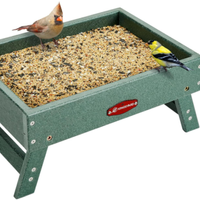8 clever ways to hang a bird feeder, even if you don’t have a tree
If you’re wondering about how to hang a bird feeder, we’ve got eight ideas for you to try out.
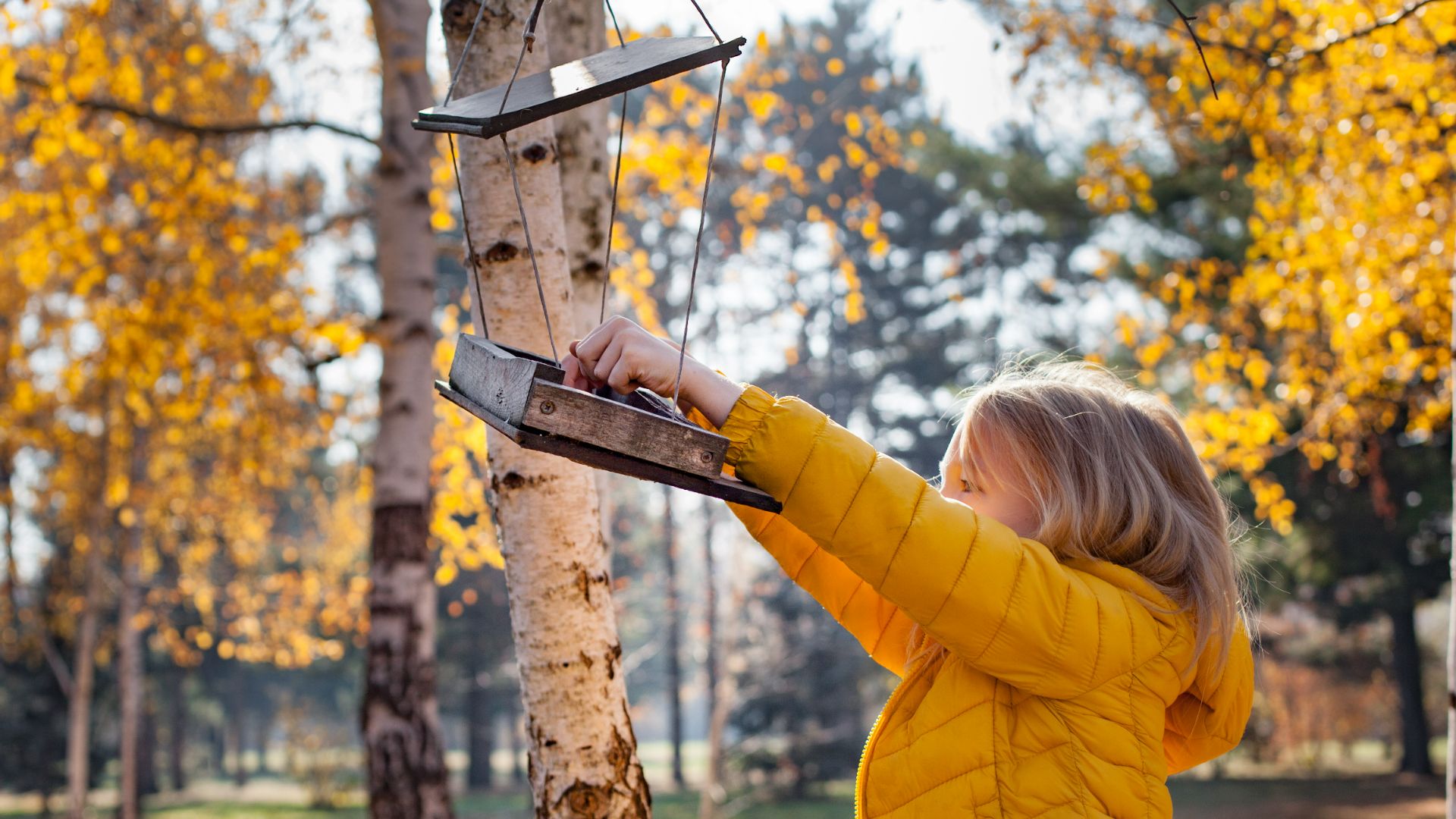
If you’re trying to figure out how to hang a bird feeder, we’ve got you covered. You can attract beautiful birds to your backyard and serve up some tasty treats for them.
Of course, you can hang one of the best bird feeders and make your job easier. But if you’re looking for a crafty DIY project then this is the article for you. Depending on the types of birds you might see in your backyard will determine what you fill your bird feeder with. If you’re unsure what the best bird food to offer is, don’t worry you can check out our vet’s guide on what to feed a bird from the kitchen to help.
In this feature, we are talking about how to hang a bird feeder, even if you don’t have a tree. Let’s find out all the easy ways you hang up your next bird feeder.
What to consider when hanging a bird feeder
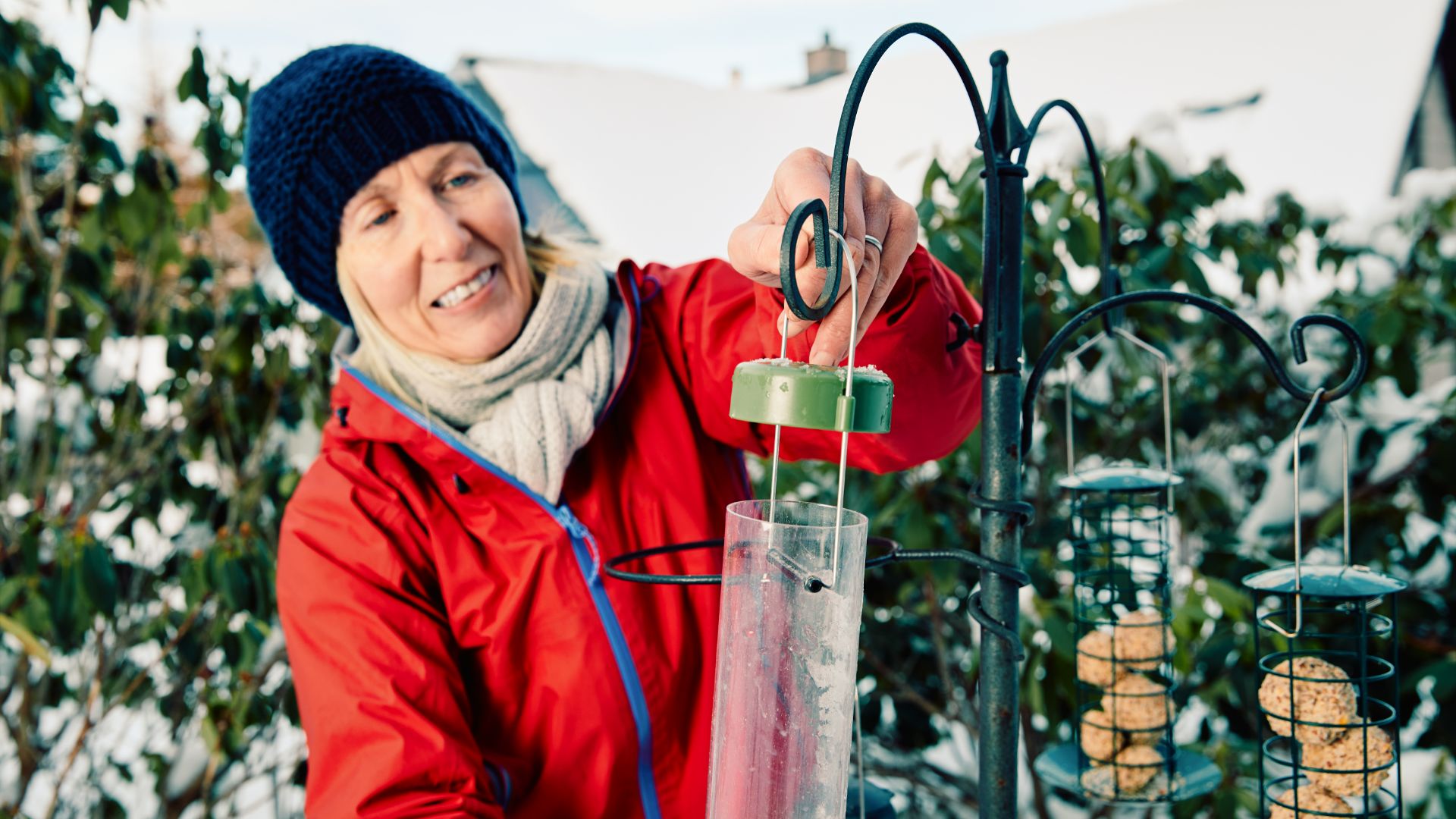
There are a few things to bear in mind when hanging a bird feeder. First, find a suitable and safe location. Typically, bird feeders are located in a visible place to attract passing birds and are safe from predators. What’s more, it’s best to avoid windy and noisy spaces and to hang in shaded areas to protect seed and nectar from spoiling quickly. Feeders are naturally messy, so it’s also important for regular cleaning and refilling.
Another thing to consider is how high should you hang a bird feeder. While this is dependent on your chosen station, it’s advisable to hang at eye level or five to six feet high, which is suitable for most garden birds. If you want to know how to stop cats killing birds, you’ll want to avoid hanging feeders too low or within the reach of cats or rodents who will raid precious feed. In addition, it may be worthwhile investing in a squirrel-proof bird feeder, which will protect birds and help to keep the feeding area more hygienic.
Squirrel-Proof Bird Feeder for Outdoor Hanging
This bird feeder is not just super cute, it will also keep squirrels out and prevent them from stealing all the food for themselves. It does this with a weight-sensitive feeding port that will automatically close when heavier animals like squirrels sit on it.
How to hang a bird feeder on a tree branch
This is one of the most common places to hang a bird feeder. Find a sturdy branch, ideally towards the trunk, and ensure you choose the right hooks to handle your feeder weight. Most feeders require an extra S-shaped hook, but there are also stretched-out extension hooks and wide branch hooks available. It’s always best to use an S-shaped hook with deeper, curved ends as they are more secure when birds land on it or on a windy day.
Next up, you need a strong cord to hold the feeder in place. This could include rope, chain, jute twine, or any other durable material. Avoid things like elastic or anything springy to create excessive moments when birds land and feed. Depending on how high up you want the feeder, ensure the length is sufficient and knotted several times. You want to make sure it is secure enough that it will not fall or become loose.
Alternative bird feeder ideas
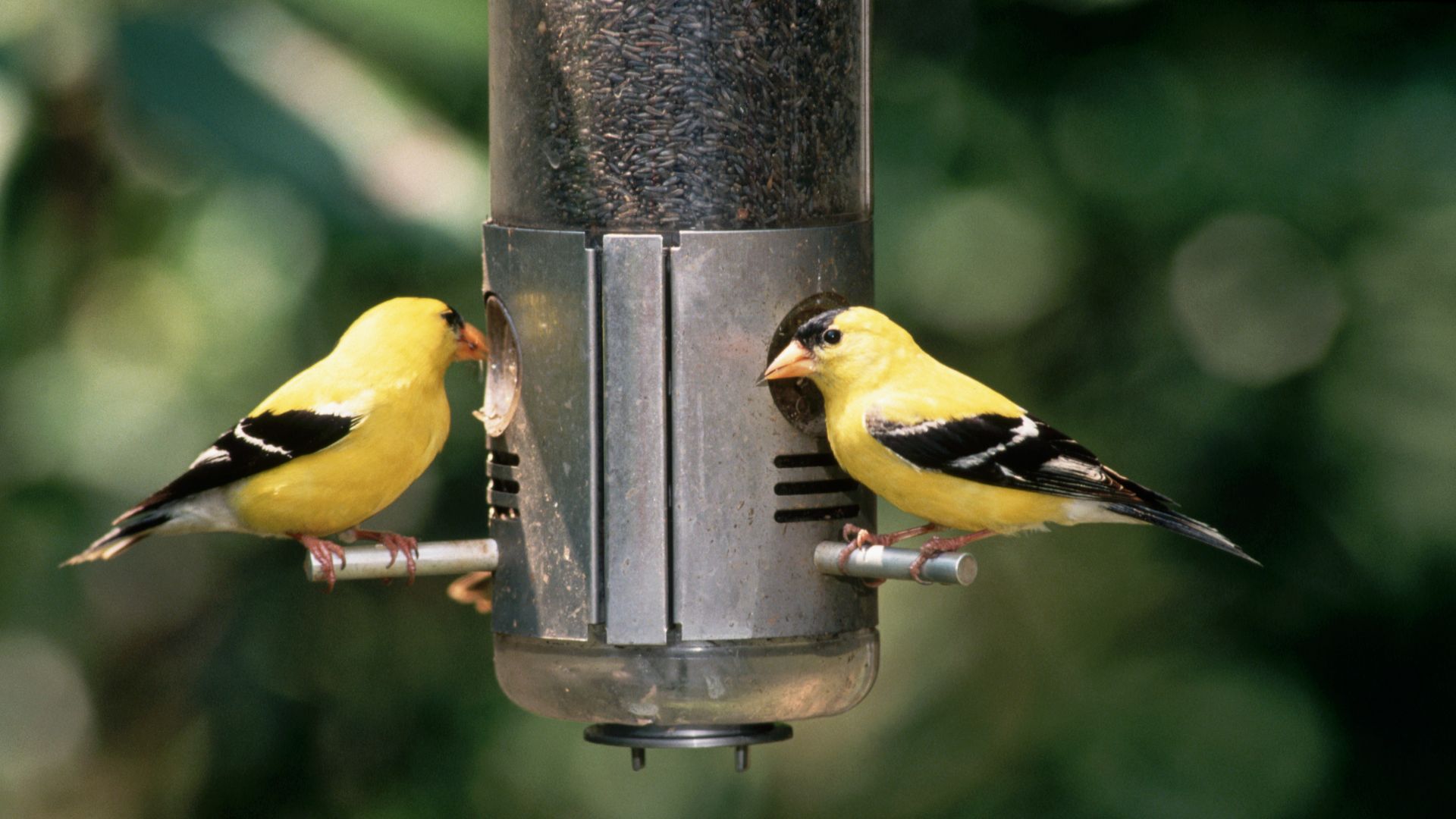
Bird feeder on a pole
Bird feeder poles are another great way of attracting furry-winged friends, especially if you don’t have sturdy trees. In addition, they are versatile, holding up to eight bird feeders at a time. The idea is to position the feeder poles at varying heights for different birds to access easily.
What’s more, they are ideal for smaller birds to eat peacefully without being pushed out by the larger, dominant birds. There are many options of pole kits that come equipped with multiple hooks or squirrel baffles to keep those athletic squirrels out! Best of all, you can place a pole anywhere around the garden to safeguard the tasty feed from predators.
On a wall or shed
If you’re tight on backyard space, wall brackets offer a great solution for hanging bird feeders to a solid structural wall. These are ideal to position on a brick wall of a house, walled shed, or outhouse.
Simply place the wall bracket up high for the bird feeder, so it’s still within easy reach to clean. Nectar feeders in particular need regular cleaning as they are prone to ants and other insects. The only downside to having a feeder on the brick wall is that you can’t get a nice view of your beautiful visitors. In that case, it’s probably best to place it near a window.
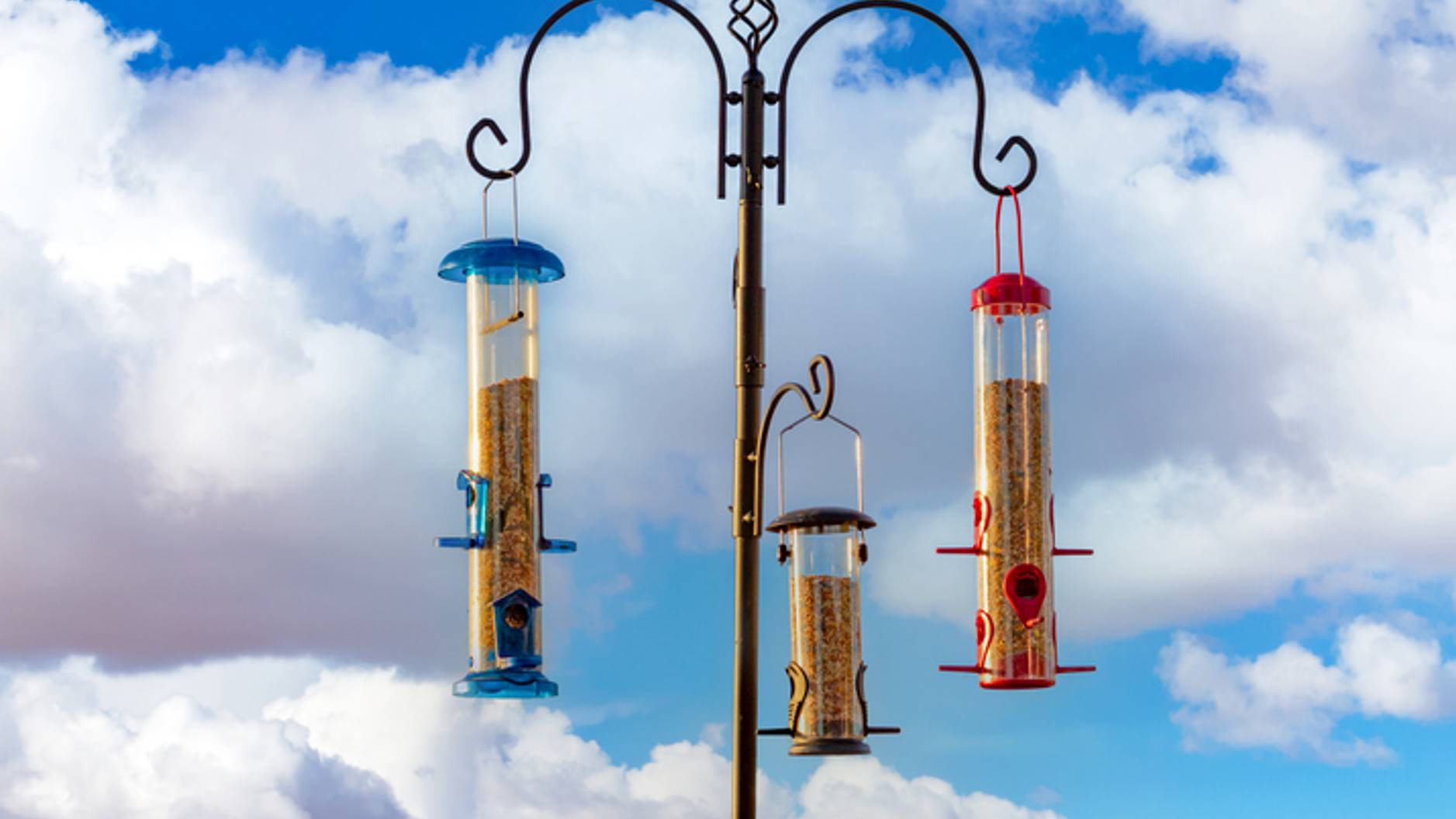
Window bird feeders
Window-mounted bird feeders are also a fuss-free option. All you need is a clear plastic window bracket with outdoor suction cups to secure in place. Just remember, the heavier your feeder is, the more suction cups you’ll need to invest in. Best of all, window bird feeders are incredibly versatile. If you don’t want to place them on glass windows, you can also fix the suction cup brackets to PVC or varnished smooth wooden window frames, a door window, or even a garden shed window.
Bear in mind, birds can’t grasp what windows are so may well try to fly into them. However, you could install window alert decals (vinyl) or window identification devices that will help birds from harming themselves.
In any case, these will create a peaceful and idyllic retreat for our garden birds and bird watchers alike!
Ground feeders
Since most people are probably used to seeing bird feeders higher up, you might be surprised to know that there's an extensive range of bird feeders based on the ground.
They can be used by a wide range of birds, including poultry, and are extremely versatile, allowing you to use them for a wide range of foods.
Being based on the ground, there is of course the risk that they could be at risk from non-bird species. Many of them come with protectors, but if an animal is particularly determined, the chances are that they will find a way in. Nevertheless, this is an ideal option if you'd like something a bit different.
Kingsyard Ground Bird Feeder for Outdoors
This versatile feeder is designed to attract a variety of birds. From doves to bluejays, your feathered friend will love scooping up tasty treats from this ground feeder.
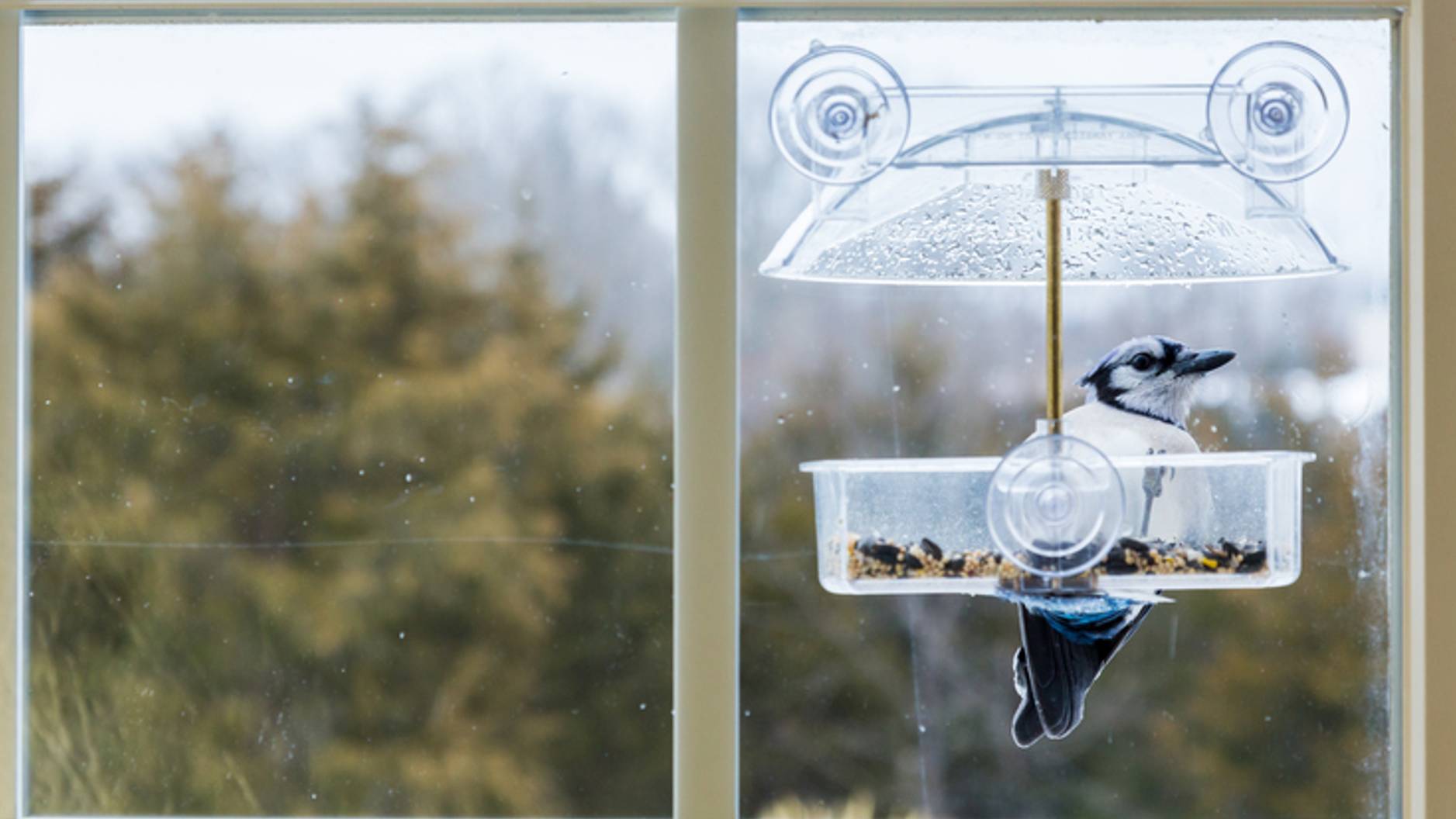
Bird tables
Depending on where you put them and their size, bird tables are likely to attract larger birds, so you should seriously consider whether this is what you want before you place one in your garden. Even so, they’re portable and easily customizable and represent one of the easiest and cheapest ways of attracting birds into your backyard.
One of the most common types of bird feeders out there, bird tables come in all shapes and sizes, and since they're stationary, they render the question of how to hang a bird feeder moot!
DIY bird feeder options
Plate or bowl feeder
This method requires a bit of handiness, but the results are worth it. To start, you just need two old pieces of tableware: a bowl and a plate. Drill a hole through the saucer and the plate and attach them together with the plate or saucer upside-down above the bowl.
The saucer will act as a little rain protector for any birdies who come to munch. Check out Erin's Creative Energy for more details on how to make this feeder.
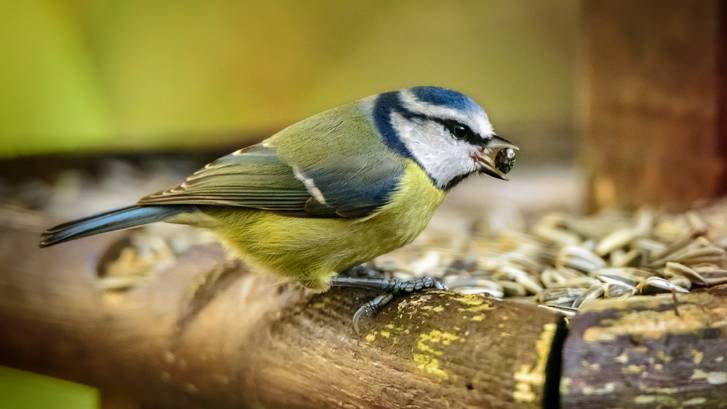
Old bottles
The Garden Roof Coop offers great advice on how to DIY wine bottle bird feeders. You'll need to be fairly handy and have tools like a drill and several bits, but the results are gorgeous feeders of repurposed wine bottles that add color and flair to your yard.
Milk carton feeder
This is a really easy one! Crayola gives a great step-by-step breakdown on how to make a DIY milk carton bird feeder, which includes grabbing an old milk carton, cutting out an opening in the side, creating flaps for it, and hanging it up in the yard! By far the easiest DIY bird feeder we've seen.
PetsRadar Newsletter
Get the best advice, tips and top tech for your beloved Pets
Cynthia Lawrence is freelance lifestyle journalist. Starting off her career in national magazines, she moved to digital and e-commerce publications. When she's not reviewing exciting products, she is obsessed with home interiors and her neighbour's cat!
- Alexis De LeaverDigital & Syndication Staff Writer
